The Christmas Habit of Forgiveness: Unwrapping the Gift of Transformation
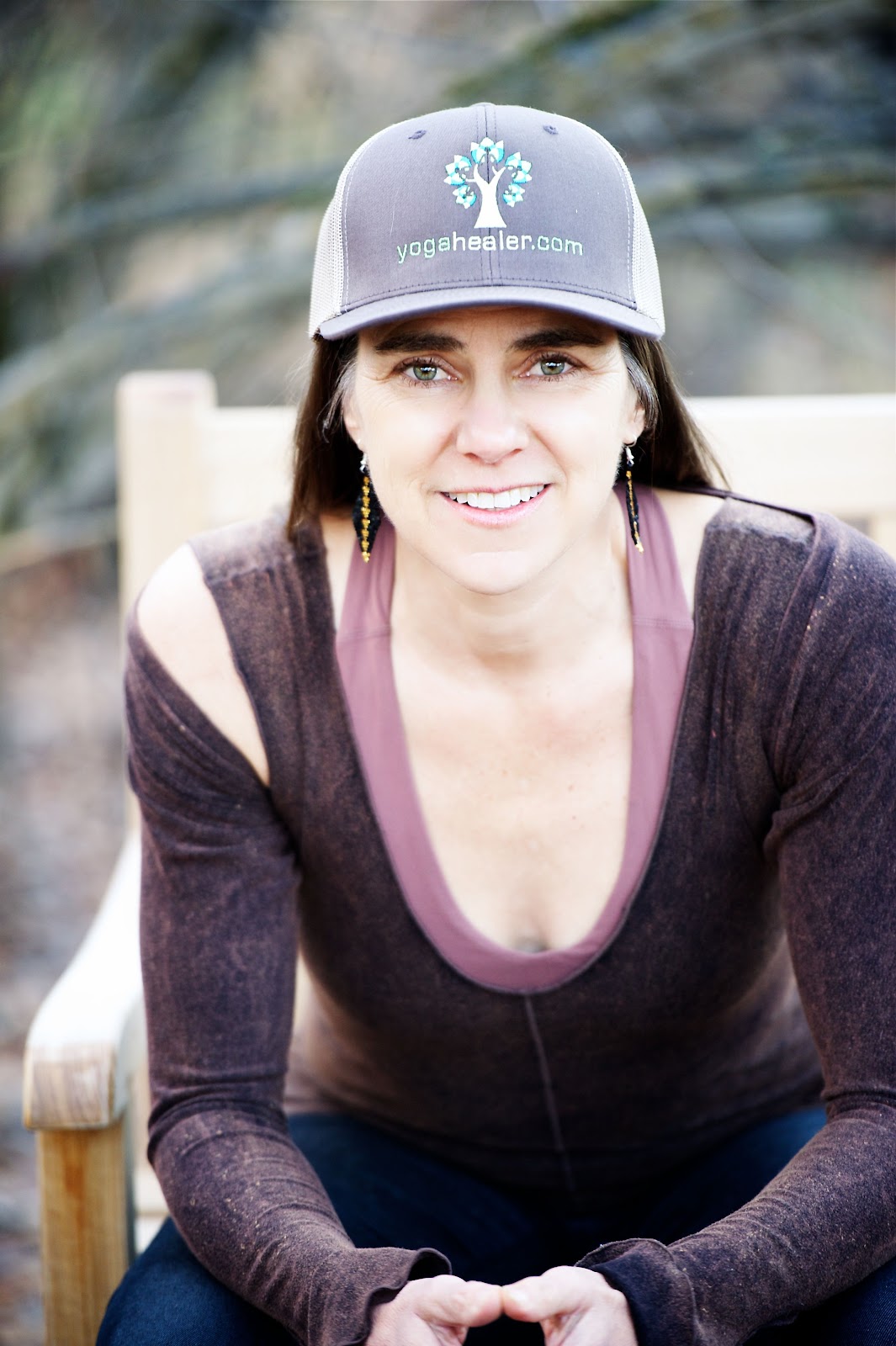
Forgive all trespasses against thee. Hold no grudge. Unchain your heart. Free your mind. The sooner, the better.
As we embrace the spirit of Christmas, let forgiveness be the gift we give ourselves and others. Just as we exchange presents, let’s unwrap the transformative gift of forgiveness. The festive season, with its warmth and joy, provides the perfect backdrop for practicing forgiveness.
Amidst the twinkling lights and festive gatherings, forgiveness becomes a beacon of regenerative health. In the glow of holiday spirit, let’s kickstart the forgiveness loop, allowing transformational change to unfold. Extend the Mayan moral code to our festive celebrations—let what we do unto others be a reflection of the light we wish to cultivate within ourselves.
The act of forgiving, whether in Christmas rapprochement or everyday life, holds the key to healing. As we navigate the holiday festivities, let the Christmas habit of forgiveness be our guiding star—a conscious choice to let go of past grievances and embrace the warmth of genuine connections. This Christmas, may the act of forgiveness become a cherished tradition—a gift we give to ourselves and those around us.
Forgiveness is a habit.
In the spirit of the Mayan moral code, Lak’ech Ala K’in, which resonates, “You are my other me. What I do unto you, I do unto myself.”
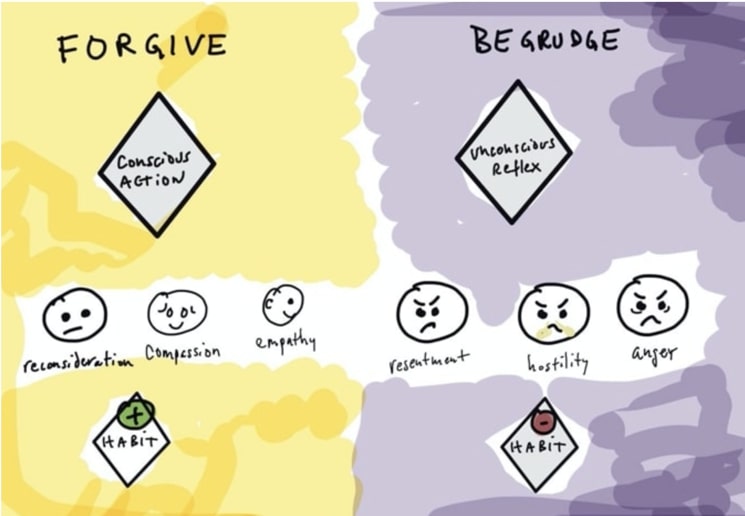
Unsurprisingly, the forgiveness habit is an indicator of regenerative health. Karen Swartz, M.D., who directs the Mood Disorders Adult Consultation Clinic at Johns Hopkins, emphasizes its impact:
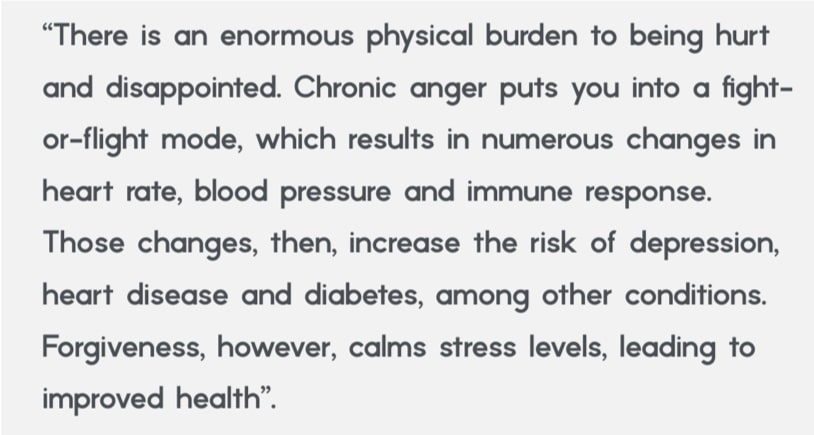
Forgiveness kicks off the loop to create transformational change. No forgiveness, no transformation.
No Forgiveness, No Transformation
Forgiveness is a conscious effort that does not occur unintentionally.
The action is deliberately letting go of resentment towards the person who wronged you. You forgive whether the other is deserving or undeserving, including forgiving yourself. No vengeance on yourself either.
What happens if I forgive the transgression?
Against myself? Against thee?
The load lightens.
The heart relaxes, physically.
The body exhales.
Forgiveness is an act.
The act can become your habit.
As you release, you rewire your feelings from resentment to compassion, from anger to empathy, and sometimes even from hostility to affection. How?
Processing forgiveness generates feedback. The feedback is the next essential propeller for the loop to become transformational. Integrating the feedback is the third step.
The rapprochement part is where feedback is allowed to be received, a bow of the ego which, in the very act itself, generates a particular revelation related to a specific circumstance.
No one wants to be in a disrespectful relationship, including you with yourself. In the habit of self-forgiveness, you churn self-disdain into a modicum of self-respect. Forgiveness towards yourself and everyone else follows the same path:
- You notice you are holding a grudge
- You pause to reconsider the root of the grudge
- This requires overcoming emotions and abandoning resentment. Good for you!
- You have a revelation, a crack of insight, a change of heart
- The feedback becomes obvious
- Rapprochement happens
- Forgiveness happens
- The feedback upcycles as a lesson learned, rewiring the entire experience as a positive stressor
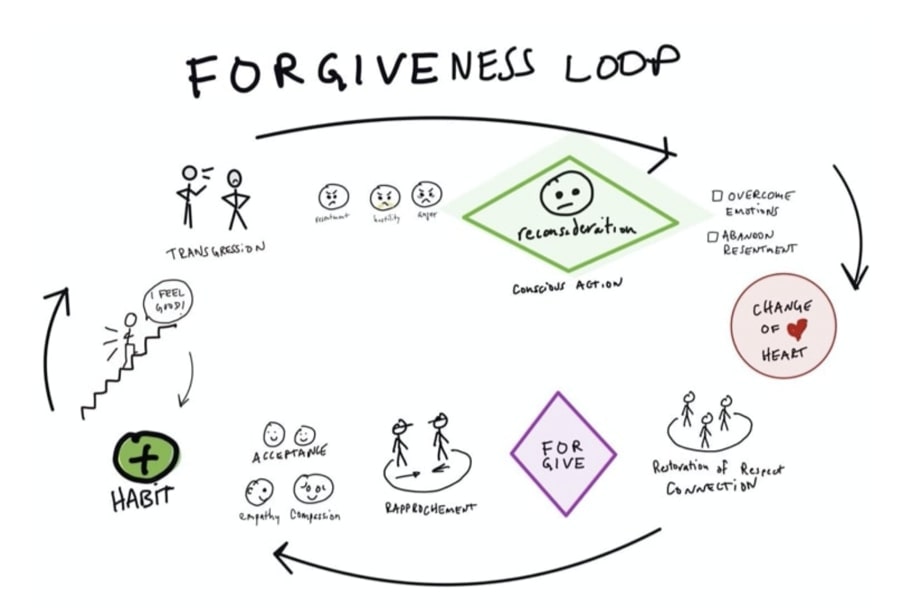
Consider this: if you do not actively forgive, you generate an enemy in your mind. You can get triggered off your chosen path. If you do not thoroughly forgive, you do not fully heal.
To forgive, study rapprochement.
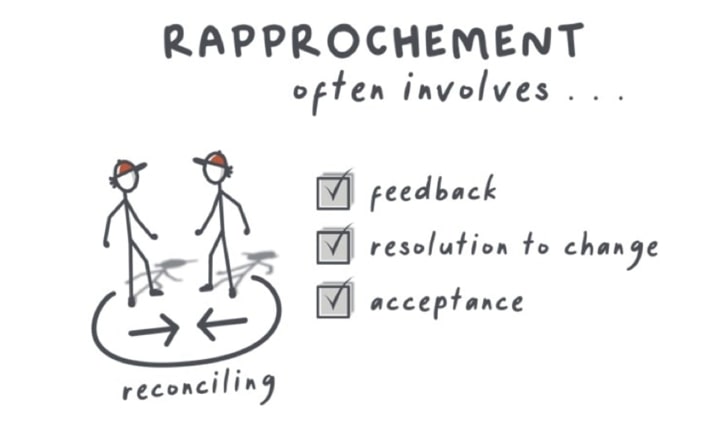
From French, rapprocher combines “re–” expressing intensive force with “approcher” – to approach.
That is exactly how every feedback/resolution cycle feels. In hot pursuit of resolution, rapprochement requires an intensive force to approach and express yourself. The express requires that you use accurate words combined with accurate feelings. Fake the funk doesn’t work for forgiveness.
Rapprochement is a process of replacing relationship-destructive responses with relationship-constructive actions. Disrespect must be churned into respect. Pride into humility. Grievance into grace. Resolution to change and behave differently in the future is often required for acceptance, for the relationship to move forward.
We grow through feedback.
Good parents have strong feedback loops for positive behaviors and negative behaviors. The same is true for good trainers and leaders of all sorts. With practice positive feedback loops the majority of the time. Forgiveness cycles happen faster. The atmosphere grows with connection. Rapprochement kindles the evolution of your relationships. Forgiveness rekindles the value.
Forgiveness as a Habit
Perhaps it looks something like this: You decide to forgive. Unequivocally, you decide to process each and all transgressions. Even your transgressions against yourself. To entertain a conscious change of heart until you digest and dissolve all emotional pain into inner resolution.
You build the habit of processing all transgressions and trespasses.
You see the benefit of the doubt and also extend to yourself the benefit of the doubt.
You flex the habit of releasing others to their path. You reconsider until you truly forgive.
Share this article:
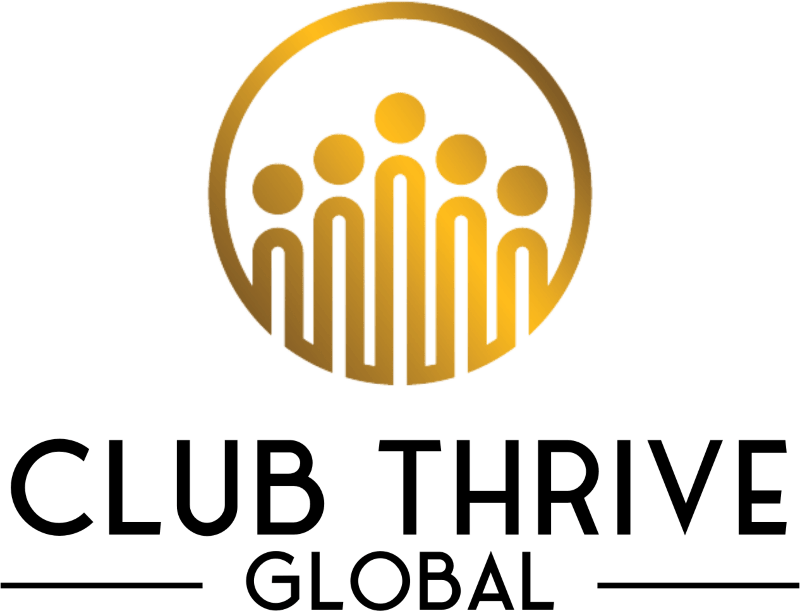

Leave a Reply